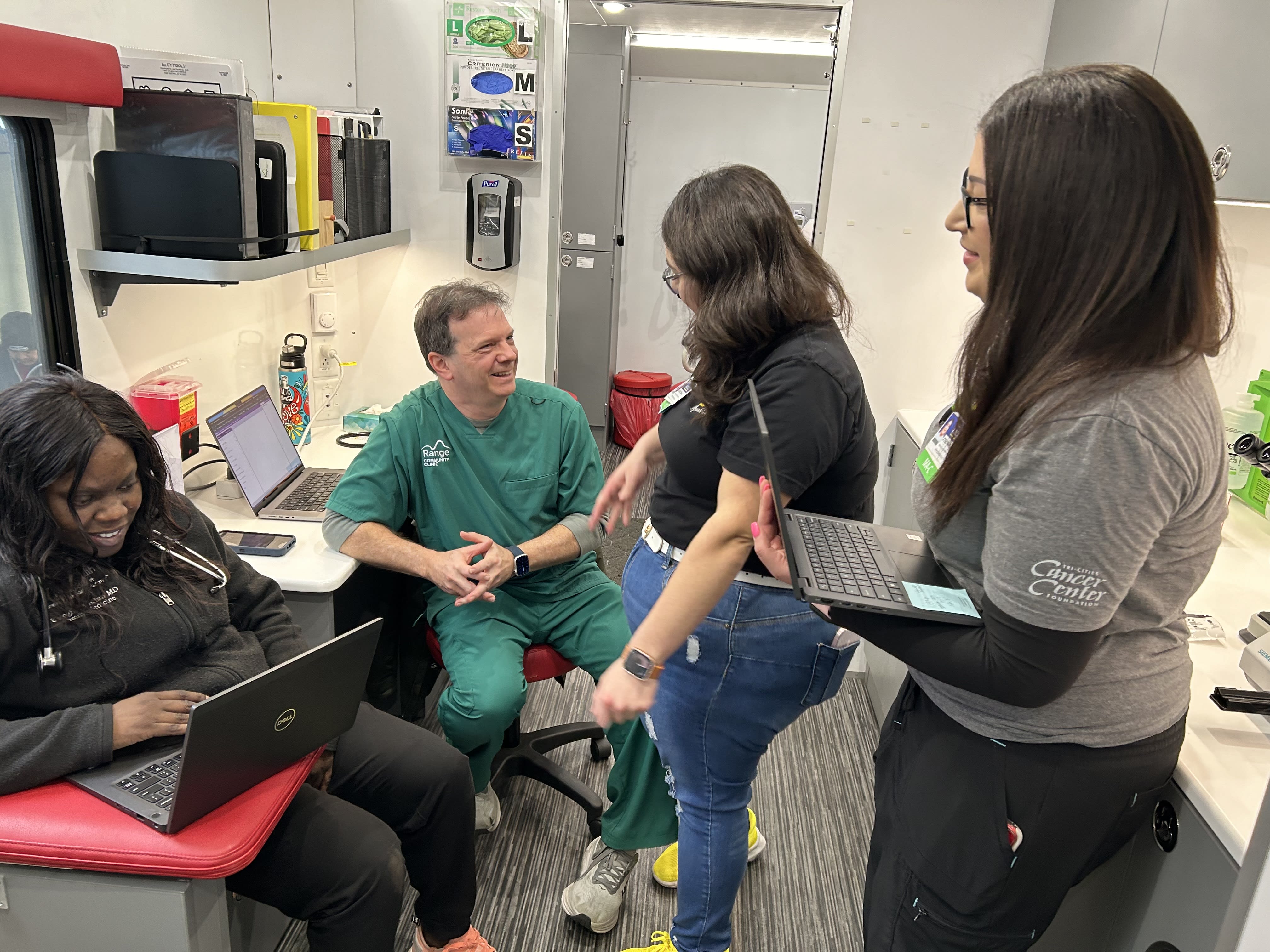
On a gray February day, the line outside St. Vincent de Paul in Pasco, Wash., stretches to the street with people awaiting food distributions and, for some, the chance to visit the mobile clinic in the parking lot.
The Range Community Clinic, a non-profit started by Washington State University, partners with Kadlec’s Population Health team and others to care for underserved people. Kadlec provides registration, medical assistants, nurses, social workers and access to services as needed.
“We follow up on the patients, especially if they need specialty care,” said Racheal Inman, Population Health manager. “We connect them to financial assistance, help them get insurance coverage, and work with them. With one woman, for example, we helped her enroll in food stamps, recommended a reduced cost air conditioning repair, and paid for the medications she needed.”
In the mobile clinic on this particular day, one patient is dealing with ongoing knee pain, a common complaint among people who work in agriculture. The next patient has an insurance gap that has left him unable to refill his insulin.
Many people cannot get enough time off from work to seek care, can’t afford to miss work, don’t have transportation, or face other obstacles, said Samuel Schneider, D.O., a Range provider. They need care that meets them where they are.
“Everyone says access is a problem,” he said. “That is too simplistic.”























